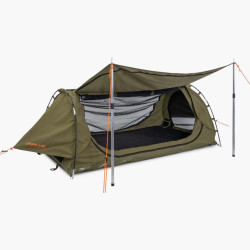
Wild Camping Laws & Permissions UK – What 4x4 Owners Need to Know
Table of Contents
- Disclaimer
- Scotland Laws & Access Rights
- England & Wales: Legal Status
- Northern Ireland Rules
- How to Stay Legal & Respectful
- Gear Essentials for Low-Impact Camping
- FAQs
Disclaimer: This article is for informational purposes only. Always check local bylaws and landowner permissions before camping. Rules can change.
Scotland Laws & Access Rights
Scotland has some of the most permissive wild camping laws in the UK under the Land Reform (Scotland) Act 2003. You generally have the right to camp in most unenclosed land, so long as you follow the “Scottish Outdoor Access Code.” That means leaving no trace, camping out of sight of roads and houses, and avoiding sensitive areas. Some places (e.g. SSSIs, nature reserves) are restricted.
England & Wales: Legal Status
In England & Wales, there is no general right to wild camp. Permission from landowners is required unless you are on land designated for relaxed or authorised camping. National Parks may allow wild camping in certain zones, often by permit. Always check National Park websites, council rules or Forestry England guidance before you set up for the night.
Northern Ireland Rules
Northern Ireland’s rules are similar to England & Wales: no automatic right to wild camp. You should get permission from private landowners and check district council rules. Remote forest or fell land may allow it, but facilities and rescue services can be more sparse.
How to Stay Legal & Respectful
- Always seek landowner permission when in doubt.
- Camp small and use existing fire pits or stoves—don’t build new ones.
- Dispose of all waste properly; pack out everything you bring in.
- Keep noise low; avoid large groups in remote locations.
- Don’t block tracks or farm access; leave gates as you found them.
Gear Essentials for Low-Impact Camping
Even when you’re wild camping, bringing the right gear makes all the difference—not only for comfort, but for legality and minimal impact. Here are essentials that help you stay legal & enjoy your experience:
- Solid rooftop tent or camper-shell for minimal ground disturbance — see Rooftop Tents category.
- Awning or room to shelter from rain or sun without damaging vegetation — see Camping Awnings & Rooms.
- Portable fridge freezer to avoid storing perishables unsafely — explore Portable 4x4 Fridge Freezers.
- Solar panels and MPPT controllers for low-impact power — e.g. Lensun Solar & MPPT category.
- Essential protection: sturdy awnings, ground sheets, recovery kit; make sure vehicles are road-legal and tyres are appropriate.
FAQs – Wild Camping Laws & Permissions UK
1. Is wild camping allowed everywhere in Scotland?
No—unenclosed land is generally allowed, but some protected areas (SSSIs, nature reserves, etc.) restrict camping.
2. Do I need insurance or notify authorities before wild camping?
Not typically, but having vehicle insurance that covers remote recovery is wise. In some National Parks, you may need permits.
3. What gear helps avoid legal issues when camping?
Low-ground disturbance gear: rooftop tents, awnings, portable power systems; clean & respect the land.
4. Can I wild camp with a 4x4 vehicle/caravan?
Using a 4x4 is fine if access is allowed and you stay off tracks, avoid obstruction, and obey local permissions.
5. What happens if I camp illegally?
You may be asked to leave, fined, or, in some areas, face enforcement by police or landowner agents.
6. Where can I find legal wild camping spots?
Use official websites, National Parks authorities, or maps that label permitted camping zones; use local forums/groups for updated info.















































































-1000x1000w-150x150.jpg)
-1000x1000w-150x150.jpg)


-1000x1000w-250x250.jpg)
-1000x1000w-250x250.jpg)


Leave a comment